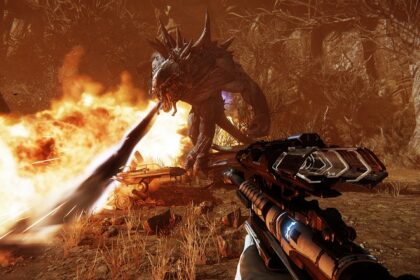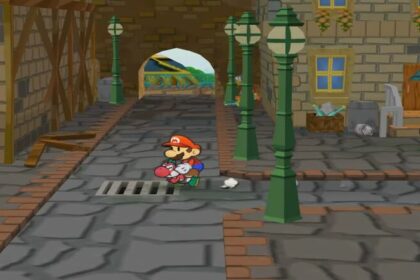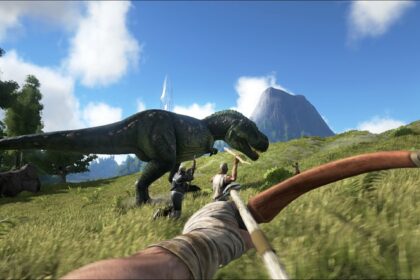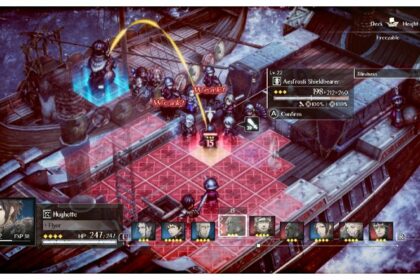Tycoon games have experienced something of a renaissance in the past couple of years. We’ve had the pleasure of playing new versions of classic titles, like theme park managers and zoo tycoon games.
However, after a certain point, new ideas were necessary. This is why we’ve also been getting an increasing number of strange, wacky management games.
From games about managing a prison to titles that had you running a fantasy herbalist shop, we’ve seen it all — but Graveyard Keeper, from Lazy Bear Games, has definitely turned out to be one of the most imaginative “tycoon” games in recent years.
The insanely detailed simulation of a medieval graveyard, which you run while you go through lots of ethical dilemmas, is one of the more surreal gameplay experiences in its genre.
But what happens when you want to explore this niche further? Are there any other games like Graveyard Keeper? Fortunately, the answer is yes! Here are 6 games like Graveyard Keeper to add to your library today.
My Time At Portia

Our first pick is just as strange as Graveyard Keeper.
In My Time At Portia, you’re playing one of the survivors of an unexplained human apocalypse. The civilization we’ve all known and loved has been destroyed for ages, and you’re one of the people who are now re-emerging from their underground shelters.
Yes, it’s time to rebuild society with the classic survival gameplay loop established by the likes of Minecraft. You’ll start by gathering the most basic resources, then move on to crafting better and better tools and slowly crafting new buildings.
As you do this, the world will change around you. Much like in Breath of the Wild, there’s a seasonal cycle on top of the day/night one.
However, you’ll also notice that there’s something reminiscent of The Settlers. Unlike most survival games, you won’t be alone. Some NPCs give you assignments, and more of them will appear as you slowly build up your local ecosystem from scratch.
There are also dungeons to explore outside the titular city of Portia, and the town itself has plenty of memorable characters you can meet. Forget about the static background characters found in most survival games.
This game stands out from the crowd when it comes to relaxing Steam games, and it’s on other platforms, too. It’s perfect for Graveyard Keeper fans who want something new.
Stardew Valley

There’s really no way to talk about Graveyard Keeper alternatives without mentioning Stardew Valley. Graveyard Keeper is very much the other, more evil side of the coin to the good-natured and kind-hearted Stardew Valley.
While, as its name suggests, Graveyard Keeper sees you tending a graveyard, Stardew Valley lets you loose on a farmstead that’s in bad need of repair. However, the game is much more than a pure farming simulator.
If you’ve ever played the old Harvest Moon games that rose to stardom on the Nintendo consoles of yore, you’ll feel right at home in Stardew Valley.
The basic gameplay loop is pretty much the same, although Stardew Valley gives you more content and plenty of quality-of-life updates compared to the older console games.
And, of course, unlike the Harvest Moon games, it’s available on the PC.
But what does it bring to the table beside the prospect of restoring a farm to greatness? It also allows you to explore nearby mines, work with the rest of the townsfolk and develop relationships with them.
All in all, the game isn’t difficult by any stretch of the imagination.
However, while (like Harvest Moon) its primary audience is younger players, it has plenty to offer to more experienced gamers. Stardew Valley has a quirky but incredibly deep attention to detail — which means every gameplay system will keep you interested for quite a long time.
And while the core farming gameplay is captivating enough, the wider world of the game and its characters are guaranteed to draw you in as well.
Spiritfarer

One of the more interesting subgenres that have sprung up in the past couple of years is the “boat-building” survival game, and Spiritfarer is one of its more stylish outings.
Throughout the game, you’ll play as Stella, the ferry-bound guide to the deceased, who uses their boat to bring the dead souls to their next life.
So, you’ll be building your boat and setting sail across the world. On your journey, you will meet a series of memorable characters which you’ll care for and befriend as you take them toward their afterlife.
With the rise of each day, you’ll take care of all the regular survival stuff; fishing, mining, farming, cooking, harvesting, and crafting. Also, the locations you visit also provide a rudimentary platforming experience with some running and jumping.
However, while most other survival games would reward these efforts with gold or another resource, the action in Spiritfarer culminates with an opportunity to say goodbye to all the characters you’re guiding “across”.
This is important because each of them comes with a rich backstory and many memories describing their lives. You’ll have plenty of time to get to know all of your passengers, and most of them are compelling enough to create a meaningful connection with.
By the end of the game, you’ll remember all of them as dear friends. This is one of the most beautiful 2D titles in recent years and fans of games like Graveyard Keeper are sure to get a kick out of it.
Littlewood

On a superficial level, Littlewood is a game that seems awfully similar to Stardew Valley, Harvest Moon, or Animal Crossing. However, it comes with a twist that’s so smart and neat that it definitely deserves a spot of its own on our list of Graveyard Keeper alternatives.
You know how most RPG games have you set forth from your small town and head off on a grand adventure, where you’ll travel the world and defeat the ultimate evil that’s threatening it?
Well, here’s the kicker; Littlewood is a game that shows what happens when that whole globetrotting adventure is over.
So, you’ve dealt with the final evil boss, survived, and returned home. The question is — what next? What will you do with your life now that the “hard part” is done?
Fortunately, there’s quite a lot to do.
The town you return to is just a mess of weeds and trees — but with your effort, it can become a thriving community once more. However, to succeed, you’ll need to harvest materials, craft tools and upgrade and build your property.
Also, each new structure you build will give you access to brand new townsfolk with which you can meet and interact, potentially developing a relationship down the line as well.
Notably, while most similar games involve at least a rudimentary combat system, Littlewood sticks to its theme and leaves monsters and weapons behind. You’re just making a post-adventure life; there’s no evil to deal with, just yourself.
One Hour Life

Next up, we’ve got a particularly innovative game.
This is a multiplayer survival game, but one that plays completely differently to anything else you might have tried. In One Hour Life, you get just an hour to play before your character passes away.
The game starts at your character’s birth. And initially, you’re just a baby cared for by other anonymous players. You’ll initially depend on others for food, but you’ll grow quickly. Soon enough, you’ll start contributing to the community by developing tools, farming, and clothes.
And yes, you’ll also start nurturing other players who are born into your care. At the end of the one-hour mark, your character will die due to old, but what you’ve built remains for everyone who comes after.
Naturally, you can keep playing and start with another character that’s born into the community. But that doesn’t change the fact that this is one of the most thoroughly innovative survival games we’ve had the pleasure of playing.
First of all, the limited time that you have with each “life” forces you to make each decision very carefully. Each friendship you make and resource you obtain in the game is extremely temporary, and you have to make the best of it within the strict time limit.
But beyond that, the knowledge that the players taking care of you aren’t random NPCs but actual people that have gone through the same lifecycle brings a lot more nuance and depth to every interaction, especially since you’ll end up caring for other players yourself.
Potion Craft

Our final pick is Potion Craft.
This is a gorgeous-looking puzzle-adventure title that sees you manage an ancient potions workshop. Unlike some of its ingredient-mixing predecessors that allowed players to dabble in fantasy alchemy, this game is about more than just discovering new recipes.
There’s a light backstory that has you brewing the exact potions that will help your small village — but the gist of the game is mixing increasingly complex potions and selling them to the local townsfolk.
The brewing process is captivating because you physically interact with the tools and potions at your disposal, which means dragging them into various flasks and cauldrons, stirring your concoctions, and cranking various bellows.
That physical aspect brings a lot of fidelity and credence to something that most games would treat as a series of drop-down menus. Instead, you feel like you’ve genuinely worked on each potion from beginning to end, which does a lot for the game’s replayability.






